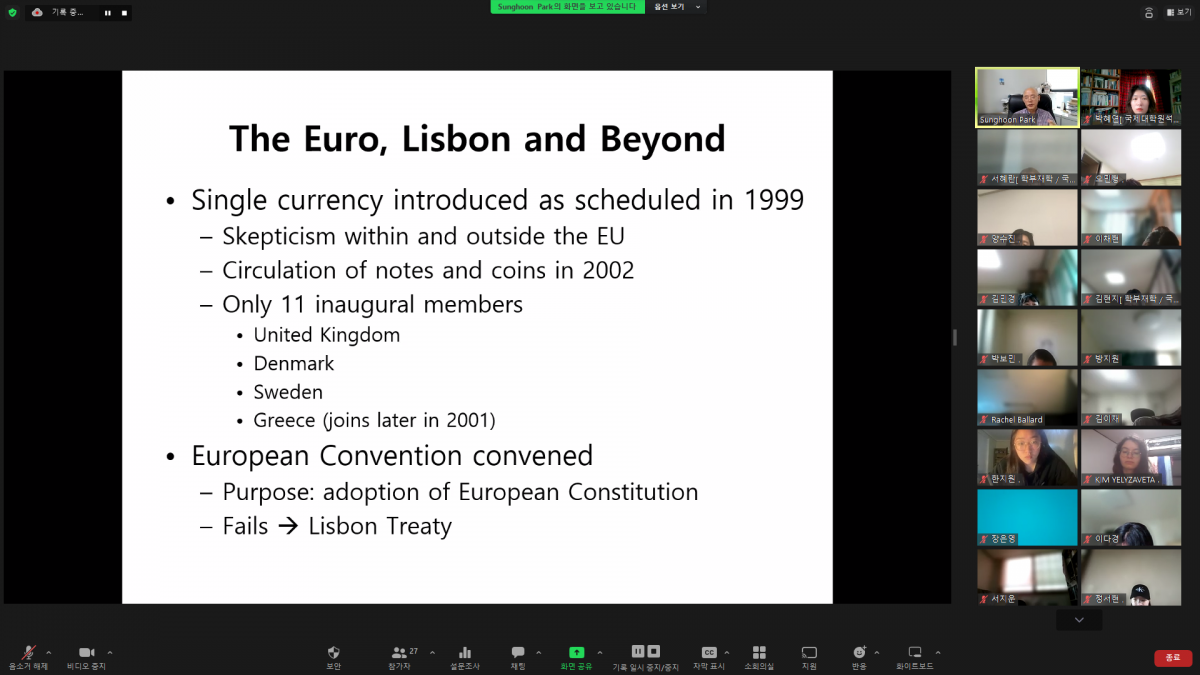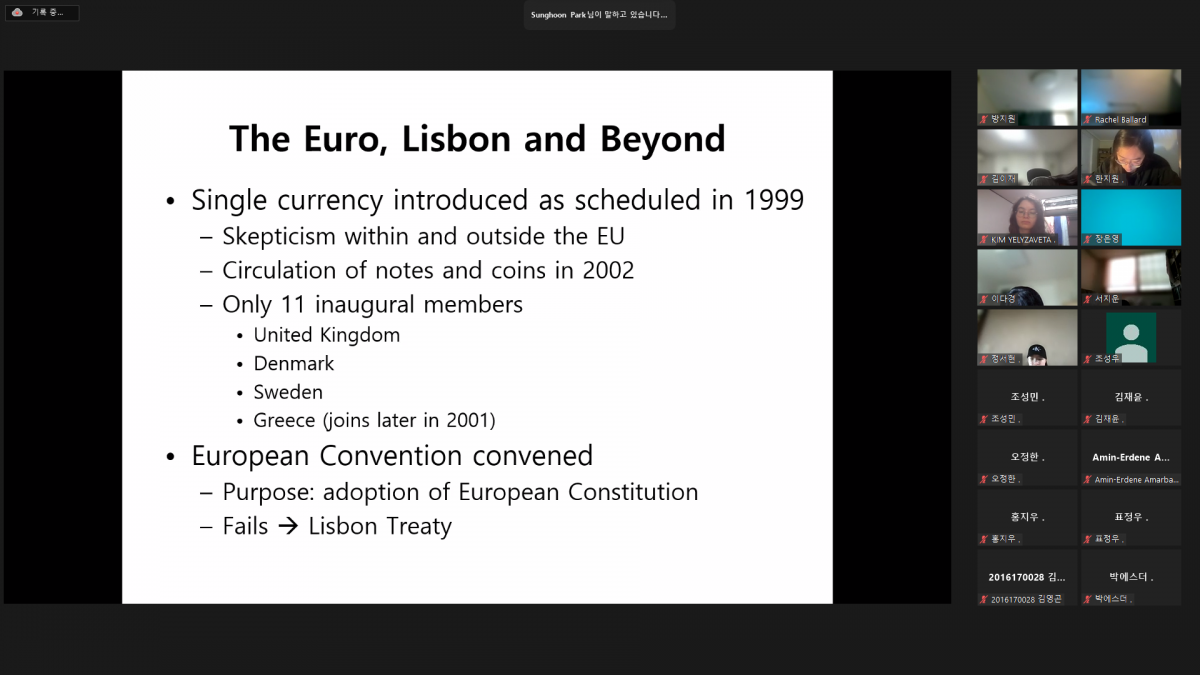Summer School 2023 <Contemporary Europe> Session 3
페이지 정보

본문
In Session 3 of ‘Contemporary Europe’ taught by Professor Sunghoon Park, Jean Monnet Chair Professor at GSIS, Korea University. It began with an introduction to the topic of EU institutions and decision-making procedures. The concept of a constitution for Europe is mentioned, with the example shown in real text. Then, the European Council is introduced as a significant decision-making body that sets the future agenda of the EU. It holds summit meetings at least four times a year and discusses critical issues. The European Commission is described as the executive body of the EU. It consists of 27 Commissioners, one from each member state. The Commission has various functions, including the power of initiation and implementation, managing EU finances, and handling external relations. The Council of Ministers, also known as the EU Council, is highlighted as the most important decision-making body in conjunction with the European Parliament. It coordinates policies, develops foreign and security policies, and adopts EU laws. Decision-making is based on qualified majority voting, with each minister from a member state allocated votes based on population size. The European Parliament plays legislative, budgetary, and supervisory roles. It passes EU laws, approves international agreements and enlargements, scrutinizes EU institutions, and engages in monetary policy discussions. The Parliament is elected and comprises Members of the European Parliament (MEPs) representing political affiliations.
The European Court of Justice is emphasized as an important but often overlooked institution. It consists of 27 judges appointed for six-year terms and deals with legal matters related to EU law. Its workload has increased due to the expansion of EU membership. Lastly, the professor discussed about the creation of specialized institutions to address specific needs, particularly in response to the global financial crisis and the eurozone debt crisis. Examples include the European Systemic Risk Board, European System of Financial Supervisors, European Banking Authority, and European Securities and Markets Authority.
Overall, the session provided an overview of the institutions and decision-making procedures of the EU, highlighting key roles and functions of each institution.
첨부파일
-
Session 3_Contemporary Europe-Summer 2023-Session 3.ppt (10.0M)
29회 다운로드 | DATE : 2023-07-11 10:04:13
- 이전글Summer School <Contemporary Europe 2023> Session 4 23.07.11
- 다음글Summer School 2023 <Contemporary Europe> Session 2 23.07.03
댓글목록
등록된 댓글이 없습니다.












